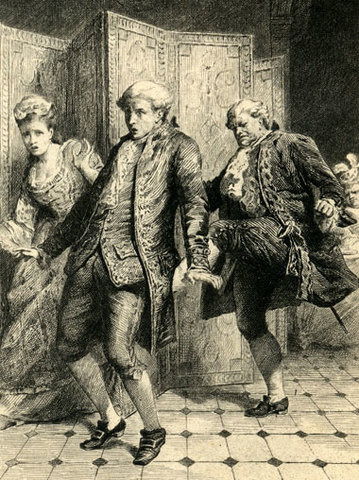
Tuesday
If you have been following Congressional fighting about emergency funding, it has broken down in predictable ways: the Democrats want to give the money directly to suffering people, healthcare services, and small businesses while the Republicans want to give it (or most of it) to big businesses, who will be expected to pass it along to their workers.
As Washington Post’s Paul Waldman sums up the current Republican plan, Treasury Director Steve Mnuchin “would have almost unlimited power to decide which companies do and don’t get this assistance,” he “would be able to keep the identity of the companies receiving assistance secret for six months, and companies would be required only to keep workers on the payroll ‘to the extent possible.’”
In other words, trickledown economics is the GOP’s universal panacea, even for a world-wide pandemic that is cratering national economies.
For that matter, Trump won’t employ the war powers act to force companies to make masks or respirators because that would be messing with free markets. (Apparently giving such companies large tax cuts and bailouts—what Bernie Sanders calls socialism for the rich—is not messing with markets.)
Such inflexibility, which we also saw from Herbert Hoover prior to the Great Depression, reminds me of the Baron of Thunder-ten-Tronckh in Voltaire’s Candide. No matter what the circumstance, the Baron refuses to let his daughter Cunégonde marry Candide because the Thunder-ten-Tronckhs have 72 quarterings to their name whereas Candide only has 71. Candide is expelled from the castle, whereupon he undergoes an endless series of misfortunes.
These include being pressed into the army, flogged, nearly executed, nearly killed, shipwrecked, captured by the Inquisition, nearly tortured and hanged, and nearly cooked in a stew. Cunégonde, meanwhile, is raped and disemboweled by the troops that overrun her father’s castle, enslaved multiple times, and finally deprived of one of her buttocks by hungry soldiers during a siege. In short, they experience hardships that are at least as bad as the COVID-19 epidemic.
When the couple finally reunite at the end of the work, however, does the Baron (or rather his son since the father’s been killed) change his views about the marriage? Does it matter to him that now Candide has more money and has just bailed him out of slavery? No, he has his principles and will stick to them, even if they drive him off a cliff:
Cunegonde did not know she had grown ugly, for nobody had told her of it; and she reminded Candide of his promise in so positive a tone that the good man durst not refuse her. He therefore intimated to the Baron that he intended marrying his sister.
“I will not suffer,” said the Baron, “such meanness on her part, and such insolence on yours; I will never be reproached with this scandalous thing; my sister’s children would never be able to enter the church in Germany. No; my sister shall only marry a baron of the empire.”
Cunegonde flung herself at his feet, and bathed them with her tears; still he was inflexible.
“Thou foolish fellow,” said Candide; “I have delivered thee out of the galleys, I have paid thy ransom, and thy sister’s also; she was a scullion, and is very ugly, yet I am so condescending as to marry her; and dost thou pretend to oppose the match? I should kill thee again, were I only to consult my anger.”
“Thou mayest kill me again,” said the Baron, “but thou shalt not marry my sister, at least whilst I am living.”
In disgust, Candide returns him back to the slave galleys.
Following the 2008 election, when the country was trying to figure out how to come back from the greatest economic collapse since the Great Depression, Mitch McConnell’s primary goal was to make Barack Obama a one-term president. Now that we are facing the greatest health crisis since the 1918 flu epidemic, McConnell’s primary goal appears to see how much more money he can push into the hands of wealthy Americans. He cares for nothing but power and wealth.
Say what you will, at least, like the Thunder-ten-Tronckhs, the man’s consistent.

